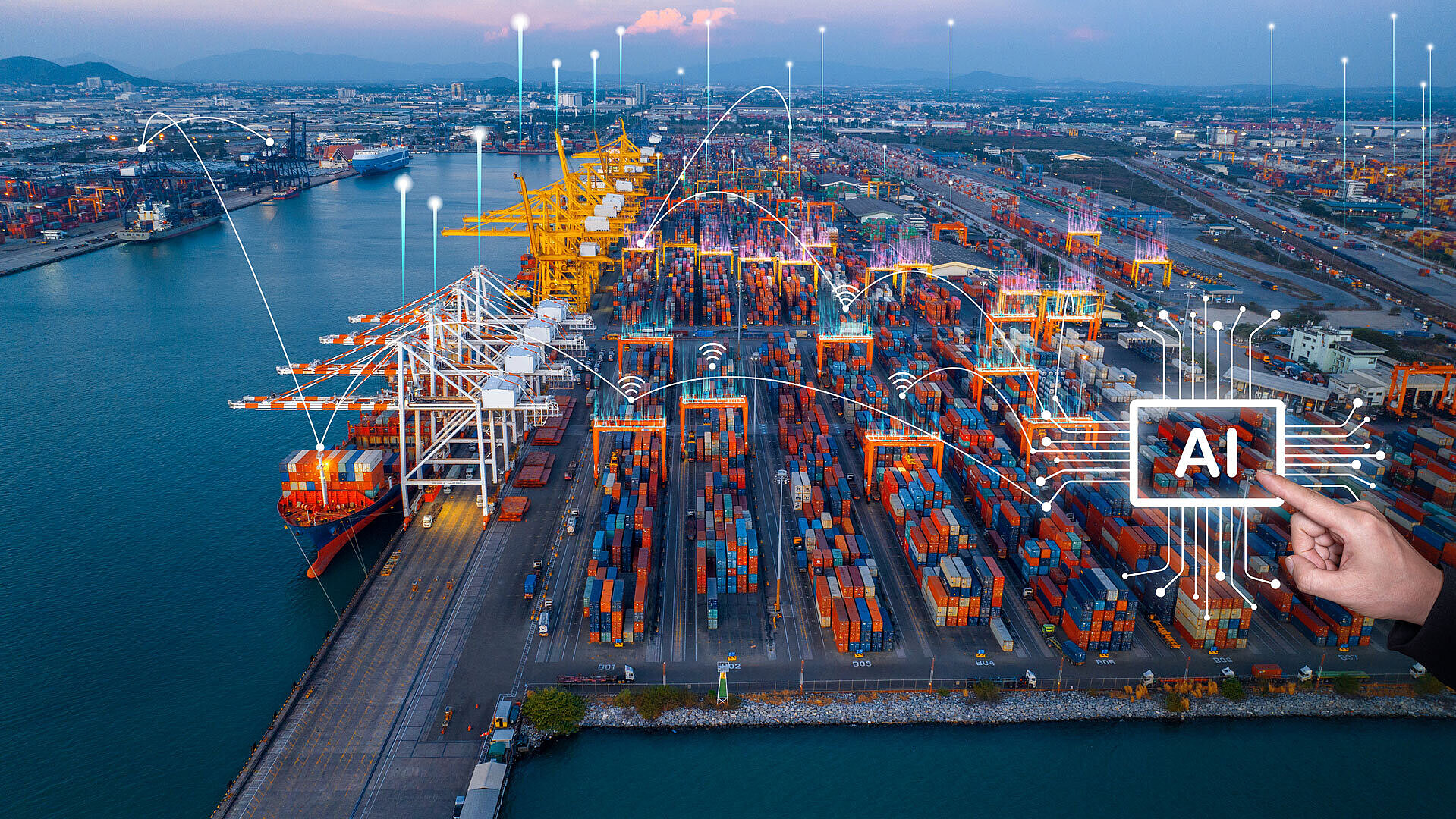
Smart freight with AI

Transport logistics is facing challenges posed by demanding customer requirements and rising costs amid volatile shipment volumes. Digitalisation and artificial intelligence (AI) offer potential here: analysing large amounts of data enables more efficient planning and control. Delivery times must be met every day, and customers expect transparent information about the location of their goods. However, many companies still lack cross-location and cross-process data bases. ‘Silos’ impair communication and coordination.
Added to this is cost pressure from more expensive fuel and personnel costs, while freight rates are fiercely contested. Errors or inaccuracies in planning can have a direct impact on profit margins. AI can help to respond more quickly to situations and use resources more efficiently. It allows complex data patterns to be identified and informed decisions to be prepared. For example, it can be used to make freight volume forecasts that take into account past order data, seasonal fluctuations and real-time information on the traffic situation. If the system detects a deviation, it suggests appropriate measures such as booking additional vehicles or adjusting routes.
Platform for freight forwarders
AI can also relieve employees of routine tasks and create space for strategic activities. The first step is always data collection. Without high-quality, up-to-date information, AI cannot deliver reliable forecasts. A focus on clear processes and goals, training and an open corporate culture are prerequisites for the successful introduction of AI.
With advancing digitalisation and increasing use of AI, autonomous vehicles, networked dispatching systems and real-time analyses are becoming standard. Companies should start initial pilot projects early on to build up expertise and achieve quick wins. Careful data preparation is just as important as involving the workforce. Once employees realise how much AI makes their daily work easier, they are more willing to embrace new processes. IT security and data protection must not be neglected either, as AI systems often process sensitive operational and customer data. Working with providers such as Fraunhofer IML can help to introduce modern technology effectively and securely. It can be assumed that AI will change logistics in the long term and make a key contribution to greater competitiveness. (uc/rok)
Logistics Made for the Future, Thursday, 1 p.m. to 2 p.m., A3.240



